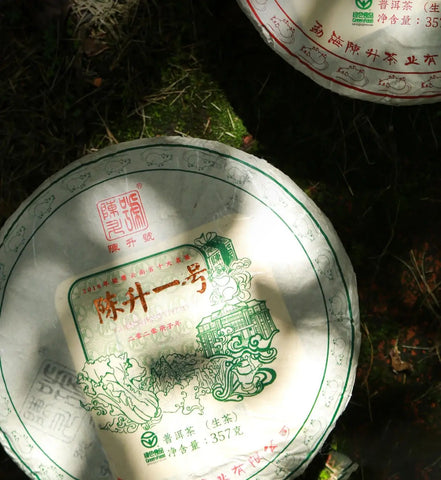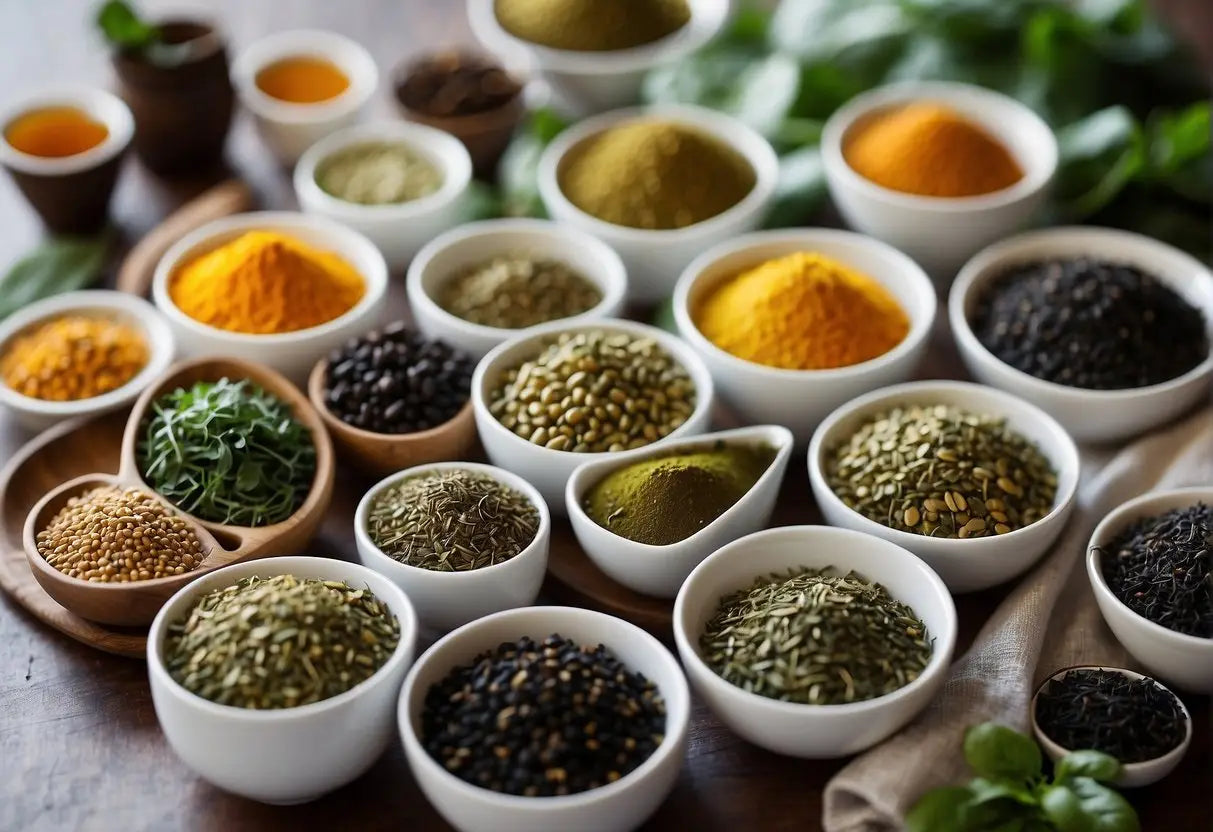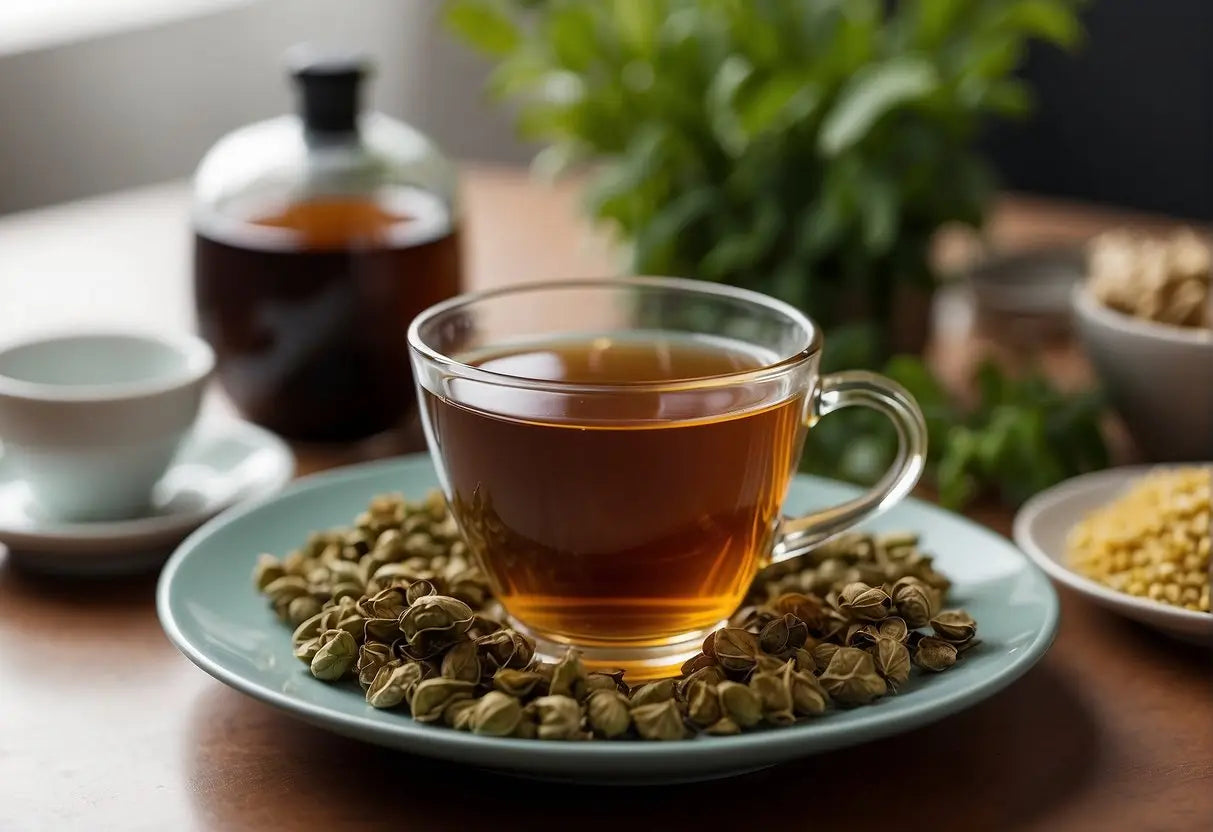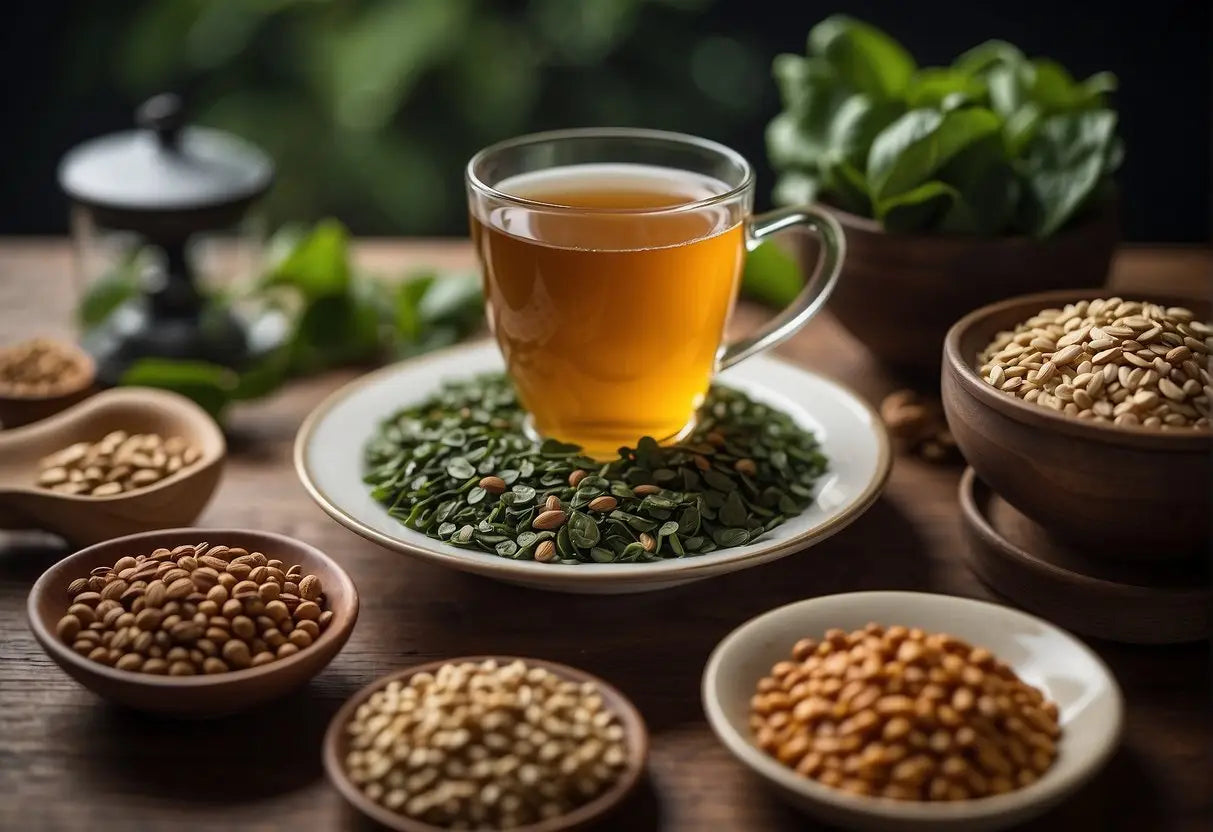What Tea is Good for Iron Deficiency
Shop our Pu Erh Tea collections!
Iron plays a critical role in your body, and specific teas can impact iron absorption. Understanding this relationship is key to managing iron levels effectively.
Importance of Iron in the Body
Iron is a vital mineral for your body, required for producing hemoglobin, a protein in your red blood cells that carries oxygen to your tissues. Without adequate iron, your body cannot create enough healthy oxygen-carrying red blood cells, leading to potential fatigue and weakened immunity.
Bestsellers

Check out our Sheng pu erh tea collection and Ripe pu erh tea collection.
Effects of Iron Deficiency
When you are iron deficient, you may experience symptoms like fatigue, weakness, pale skin, and shortness of breath. In severe cases, iron deficiency can lead to anemia, a condition where your blood lacks enough healthy red blood cells or hemoglobin.
Role of Tea in Iron Absorption
Tea contains compounds called polyphenols, which can bind to iron and potentially inhibit its absorption, particularly non-heme iron, the form found in plant-based sources. Therefore, it is suggested to consume tea a few hours apart from iron-rich meals or supplements to minimize the impact on iron absorption. However, Vitamin C can counteract this effect, so adding a source of this nutrient to your tea or diet when consuming iron-rich foods may help enhance iron absorption.
Best Teas for Iron Deficiency

When dealing with iron deficiency, selecting the right tea is crucial as some varieties can inhibit iron absorption, while others can have a neutral or beneficial effect.
Herbal Teas
Herbal teas, particularly those made from nettle leaf, dandelion, and lemon grass, can be beneficial for your iron levels. Nettle leaf tea is rich in both iron and vitamin C, the latter enhancing iron absorption. Dandelion tea is also known for its iron content and helps in detoxifying the liver, potentially improving your overall iron status. Lemon grass tea might not be high in iron but is full of vitamin C, which assists in increasing the bioavailability of iron from other sources.
- Nettle Leaf Tea: High in iron, best consumed with a source of vitamin C.
- Dandelion Tea: Contains iron and supports liver health.
- Lemon Grass Tea: Packed with vitamin C for better iron absorption.
Fruit Infusions
Fruit infusions, especially those high in vitamin C like orange or strawberry, can promote iron absorption. They do not contain actual tea leaves, which means they are also free of caffeine and tannins that can interfere with iron uptake.
- Orange Infusion: High vitamin C content enhances iron absorption.
- Strawberry Infusion: Another good source of vitamin C, facilitating iron uptake.
Green Tea
Green tea is linked to numerous health benefits but should be consumed with caution by individuals with iron deficiency due to its catechin content. These antioxidants can bind to iron, making it less available for absorption. To mitigate this effect, it's advisable to consume green tea between meals rather than with meals and to pair it with a source of vitamin C.
- Green tea: High in antioxidants, but best consumed between meals for iron absorption.
Blackstrap Molasses Tea
Blackstrap molasses is a byproduct of sugar refining that retains many minerals, including iron. Adding a tablespoon of blackstrap molasses to warm water creates a fortifying tea-like drink that can contribute to your daily iron intake.
- Blackstrap Molasses "Tea": Simply add to hot water for a quick iron boost.
Factors Influencing Iron Absorption

When trying to increase your iron absorption from tea, it's essential to consider certain compounds that can enhance or inhibit iron uptake by your body.
Lao Ban Zhang
Tannins and Iron Absorption
Tannins, present in tea, are polyphenolic compounds that can hinder iron absorption. Especially high in black and some herbal teas, tannins bind to iron, especially non-heme iron found in plant-based foods, reducing its bioavailability. To mitigate this effect, it is advisable to consume tea between meals rather than during a meal when iron absorption is critical.
Vitamin C and Iron Absorption
On the contrary, vitamin C (ascorbic acid) significantly boosts iron absorption. Including a source of vitamin C when you drink tea can counteract the inhibitive effect of tannins. Consuming foods high in vitamin C like oranges, bell peppers, or strawberries can facilitate the uptake of non-heme iron paired with your tea intake.
Tea Preparation and Consumption
When addressing iron deficiency, how and when you consume tea can play a significant role in iron absorption.
Optimal Times for Tea Drinking
For optimal iron absorption, you should avoid drinking tea during or immediately after meals as it contains polyphenols and tannins that can inhibit iron absorption. It's better to enjoy your tea between meals—aim for at least an hour before or two hours after eating to minimize its impact on iron uptake.
Tea Brewing Techniques
Steeping your tea correctly can affect not only flavor but also its iron-binding properties.
- Temperature: Use boiling water (about 100°C or 212°F) to brew black tea.
- Duration: Steep for 3-5 minutes to avoid excessive release of tannins.
- Type of Tea: Consider herbal teas like rooibos or lemon grass that are lower in tannins and may be a better choice for individuals with iron deficiency.
Alternative Iron-Enrichment Strategies
In addressing iron deficiency, you have options beyond drinking tea. Enhancing your iron intake can be approached through dietary changes and the use of iron supplements.
Dietary Changes
You can increase your dietary iron by focusing on iron-rich foods. Here's a concise list to consider:
- Meat Sources: Beef, lamb, and chicken liver are especially high in heme iron, which your body absorbs most efficiently.
- Plant Sources: Incorporate legumes like lentils and chickpeas, as well as leafy greens like spinach and kale, for non-heme iron.
- Fortified Foods: Choose cereals and breads fortified with extra iron.
Pair these foods with vitamin C-rich items like oranges or bell peppers to enhance iron absorption.
Iron Supplements
If your diet does not meet your iron needs:
- Form: Opt for ferrous sulfate or ferrous gluconate as they are more readily absorbed.
- Dosage: Follow healthcare provider's advice to avoid overdosing, which can be harmful.
- Timing: Take iron supplements on an empty stomach or with a source of vitamin C to maximize absorption. Avoid taking them with calcium-rich foods or beverages, which can interfere with iron uptake.
Consultation with Healthcare Professionals
When managing iron deficiency, your first step should be to consult with a healthcare professional. They can confirm the diagnosis with a blood test and provide guidance on which types of tea might be beneficial for your condition.
Healthcare professionals can help you understand which teas are:
- High in iron: Certain herbal teas contain more iron than others.
- Low in tannins: Tannins in tea can inhibit iron absorption.
- Caffeine-free: As caffeine can also interfere with iron absorption.
It is crucial that you discuss your dietary habits with your healthcare provider, including your tea consumption, as this can impact the treatment plan they suggest.
Remember, iron supplements may be necessary in some cases, and only a healthcare professional can advise you on the right dosage and whether it can be combined with tea consumption for your treatment.
You may be advised to:
- Monitor your tea intake: Keep track of how much tea you consume daily.
- Time your tea drinking: It's often recommended to drink tea between meals rather than with meals to lessen the impact on iron absorption.
Safety and efficacy are paramount, so adhere to the recommendations provided by your healthcare provider. They have the expertise to guide you towards managing your iron deficiency effectively.
Frequently Asked Questions

In this section, we're addressing common concerns regarding the relationship between tea consumption and iron deficiency. You will find specific information about how different teas can affect iron levels in the body.
Can drinking ginger tea benefit individuals with iron deficiency?
Ginger tea may have a mild positive effect on iron absorption when consumed in moderation. However, it should not be relied upon as a primary source for correcting iron deficiency.
How does chamomile tea affect iron absorption in the body?
Chamomile tea can interfere with iron absorption, especially if consumed in close proximity to iron-rich meals. Limiting its intake can be beneficial if you have iron deficiency.
What impact does green tea have on iron levels?
Green tea contains catechins which may inhibit the absorption of non-heme iron. To minimize this effect, it's best consumed between meals rather than with meals.
Are there any benefits of peppermint tea for those with low iron?
Peppermint tea generally does not have a significant impact on iron absorption, but it should be consumed in moderation to avoid any potential negative effects.
Does consumption of hibiscus tea aid in managing iron deficiency?
Although hibiscus tea is rich in vitamin C, which can enhance iron absorption, it also has high levels of polyphenols that may inhibit iron absorption.
Could black tea consumption exacerbate iron deficiency conditions?
Black tea is high in tannins, which can hinder the absorption of iron from foods. Individuals with iron deficiency might want to limit or avoid black tea consumption to prevent exacerbating the condition.
← Older post Newer post →











